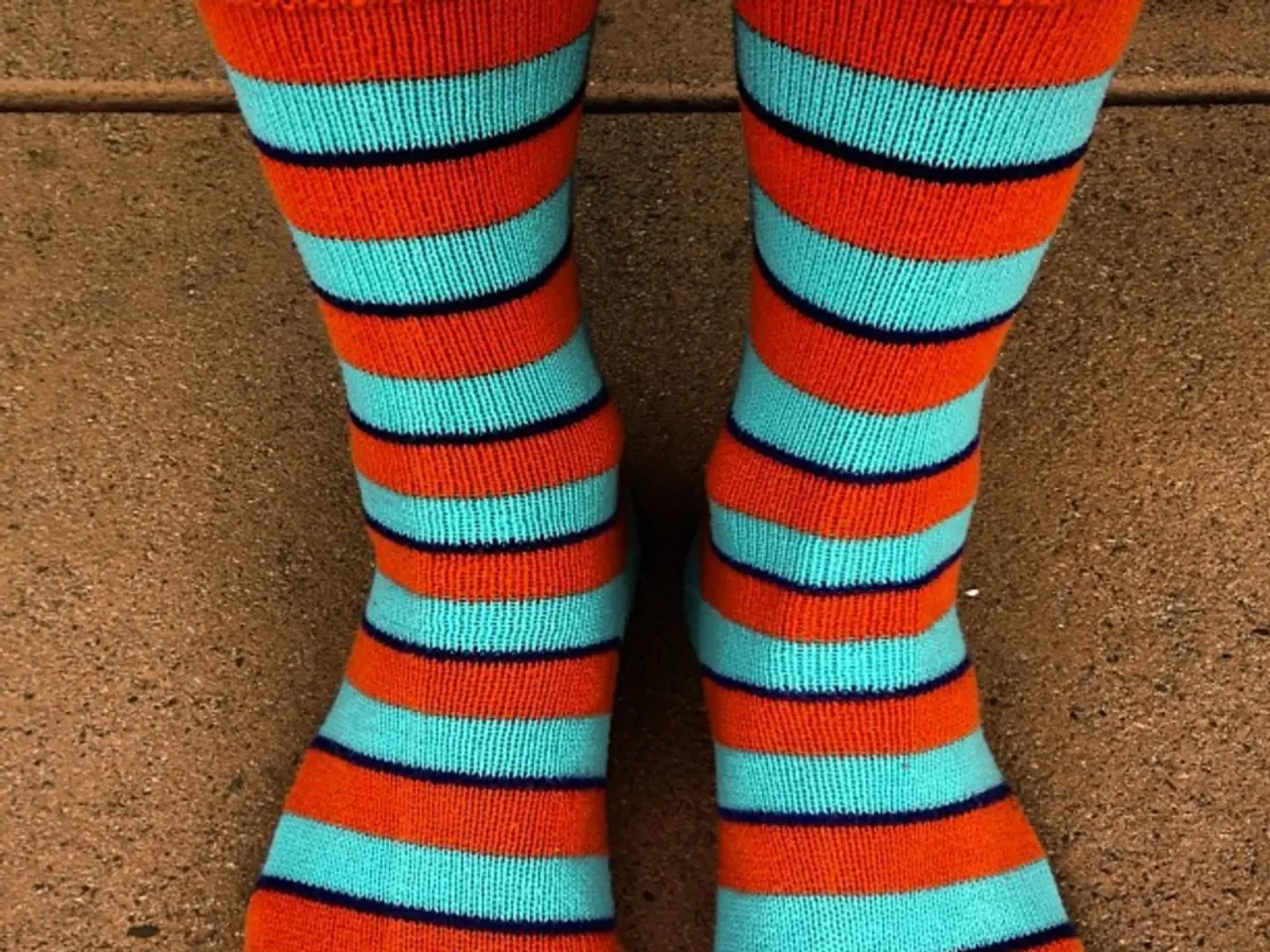Exciting Discoveries Regarding Parkinson's Prevention Strategies
Study reveals significant improvements in Parkinson's patients after psilocybin usage
Wondering if there's a way to keep Parkinson's at bay? Rheumatologist Dr. Mahsa Tehrani spills the beans on potential strategies to prevent the ever-increasing occurrence of Parkinson's disease on 'America Reports.'
As the number of Parkinson's cases keeps climbing, researchers are speedily searching for solutions to combat the disease's effects. And they've stumbled upon an unexpected source of relief.
Psilocybin, a psychedelic compound found in certain mushrooms, has shown promising results in enhancing mood, cognition, and motor symptoms in Parkinson's patients as per a recent study by the University of California San Francisco (UCSF).
This intriguing substance, often referred to as "magic mushrooms," has previously demonstrated the ability to alleviate depression and anxiety, making researchers curious about its potential for Parkinson's.
*ROAR OF RETREATS: PSILCYBIN BOOKINGS UP BY 183% AS HEALTH PROFESSIONALS DISCUSS THE UPSIDE OF UNREGULATED USE*
People living with Parkinson's disease often struggle with "overpowering mood dysfunction" and seldom respond positively to traditional antidepressants, explains the UCSF press release.
According to the study, psilocybin can help improve mood, cognition, and motor symptoms in Parkinson's patients. (iStock)
"Many people don't realize this, but mood symptoms in Parkinson's are linked to a quicker physical decline," said lead study author Ellen Bradley, M.D., assistant professor and associate director of UCSF's Translational Psychedelic Research Program, in the release.
"And they are actually a stronger predictor of patients' quality of life with Parkinson's than their motor symptoms."
The small study featured 12 participants with mild to moderate Parkinson's disease, all experiencing depression and/or anxiety. Ranging from 40 to 75 years old, they received a 10 mg-dose of psilocybin, followed two weeks later by a 25 mg-dose. To assess the effects, the participants met with a licensed therapist before and after receiving the medication.
*FDA SLAPS DOWN MDMA AS PSYCHEDELIC-BASED TREATMENT FOR MENTAL HEALTH, PTSD*
At the one-week and one-month follow-ups, the participants reported "significant improvements" not only in mood and cognition, but also motor function.
"These results are really uplifting," Bradley shared with our website Digital. "Depression and anxiety, which drain the lives of so many people with Parkinson's, improved significantly - and those improvements lasted for at least three months after patients took the drug."
Amir Inamdar, a pharmaceutical physician in the U.K. and chief medical officer at Cybin, expressed his thoughts on the improvement in motor symptoms:
"As the authors note, this could be because of psilocybin's effect on several serotonin receptor types." (Inamdar was not involved in the study.)
The most common side effects of psilocybin were anxiety, nausea, headache, and elevated blood pressure, but none were grave enough to necessitate medical intervention, according to the researchers.
"Despite reports of tough experiences in a couple of participants, psilocybin seemed to be well-tolerated," Inamdar observed. "The side effects were consistent with those observed in other studies, with no precipitation/ intensification of psychotic symptoms."
The study, published in Neuropsychopharmacology, a Nature publication, received funding from an unidentified patron.
Caveats and Future Exploration
This marked the beginning of research into the effects of a psychedelic substance on individuals with neurodegenerative diseases, according to UCSF.
Although this study was a meaningful first step, Bradley mentioned that the researchers could not draw definitive conclusions from it, as it was a small pilot without a control group.
"We've launched a far larger trial designed to rigorously test if psilocybin is effective in Parkinson's," she informed our website Digital. "We're also gathering multimodal biological data to understand how psilocybin operates. That's vital not only for optimizing psilocybin treatments, but also for guiding the development of future psychedelics that are now in the pipeline and could be promising for people with Parkinson's."
Bradley still advises Parkinson's patients to be "extremely cautious" when considering psilocybin and other psychedelics.
"I wouldn't advise my patients with Parkinson's to start using psilocybin," she clarified. "We're very early in this research, and we don't believe these drugs will be safe for everyone with the illness."
This unveiled the first study evaluating the effects of a psychedelic substance on patients with a neurodegenerative disease, as per UCSF. (iStock)
"I hope that people continue to advocate for research so we can hasten the process of identifying the appropriate psychedelic treatment for the right patient at the right time."
Inamadar also acknowledged the limitations of the study:
"The study was based on a restricted and selective sample. The improvements in mood and anxiety symptoms were still seen at three months."
"Overall, the quite promising results warrant further investigation, particularly in uncovering the mechanisms behind improvements in motor symptoms."
Melissa Rudy is senior health editor and a member of the lifestyle team at our website Digital. Story tips can be sent to [email protected].
- The neurodegenerative disease, Parkinson's, is a condition that interest researchers due to its increasing prevalence, and they are exploring various strategies for prevention.
- A recent study by the University of California San Francisco (UCSF) has highlighted the psychedelic compound, psilocybin, found in certain mushrooms, as a promising potential relief for Parkinson's symptoms, such as mood, cognition, and motor symptoms.
- Known as "magic mushrooms," psilocybin has previously shown benefits in alleviating depression and anxiety, prompting scientists to explore its potential in managing Parkinson's disease.
- Researchers are particularly intrigued by the impact of psilocybin on mood symptoms in Parkinson's patients, as they are linked to a faster physical decline and are stronger predictors of patients' quality of life.
- In the study, 12 participants with mild to moderate Parkinson's disease, suffering from depression and/or anxiety, received doses of psilocybin, revealing significant improvements in mood, cognition, and motor function at follow-ups.
- Pharmaceutical physician Amir Inamdar, expresses his support for the improvement in motor symptoms, suggesting that psilocybin could be well-tolerated and effective due to its influence on certain serotonin receptor types, although more research is needed to confirm these findings.






